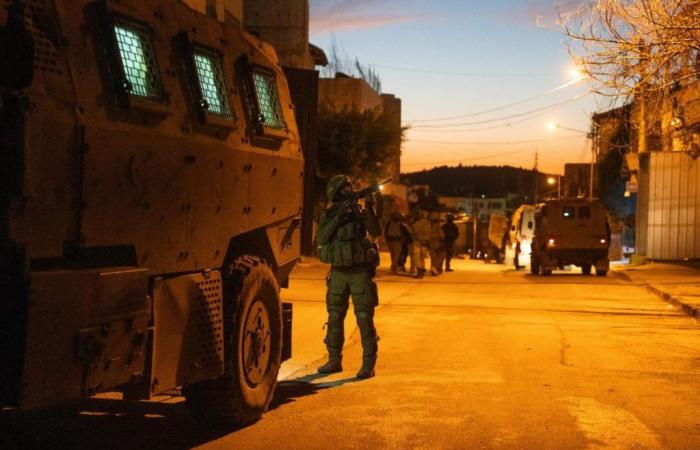
The Israel Defense Forces (IDF) were aware of the plan of the Palestinian Islamist movement Hamas to kidnap between 200 and 250 people approximately three weeks before the attack on 7 October 2023. The Israeli public television broadcaster “KAN” revealed that a document on the matter “It had been released internally on September 19 and was apparently brought to the attention of at least some senior (IDF) intelligence officials, but apparently ignored.” The report would have been compiled by the Gaza Division of the IDF. During the October 7 attack, 251 people were taken hostage.
The document titled “Detailed Training” also reported that Hamas was training for a large-scale invasion of Israeli territory. Based on information from military intelligence unit 8200, the document estimated the number of hostages at 200-250, “Kan” reported, citing security sources. During the actual attack on October 7, 251 hostages were taken and approximately 1,200 people were killed. The document described a series of exercises by Hamas special military units, which had simulated raids against Israeli cities and military positions, carried out training on how to hold soldiers and civilians hostage once they returned to the Gaza Strip, and decided under what circumstances they could be killed.
“At 11:00, several (Hamas) units gathered to pray and have lunch before starting training. At noon, equipment and weapons are distributed to the fighters, after which a unit headquarters exercise takes place. The raid exercise begins at 2pm,” the document reads. According to what was reported by “Kan”, the report also explained that Hamas commando units had practiced infiltrating fake outposts of the Israel Defense Forces, simulating bases located in the Jewish state on the border with Gaza. The exercises would have been conducted by four units of the Islamist group, each of which would have been assigned a different outpost. The document also specified the command objectives within the bases, including control rooms, synagogues and accommodation. During the exercises, the Hamas militiamen received the following orders: ensure that the hostages did not have phones with them; not informing the families of the abductees about the conditions of their relatives; move the hostages if it emerged that Israel had determined their location; and threaten to kill the hostages to dissuade them from fleeing. According to the document, the most extreme scenario for which the Gaza Division had prepared before October 7 was that of dozens of Islamists violating the border, a much lower forecast than the approximately 3,000 Hamas militiamen who entered Israel during the attack . For their part, the IDF did not recognize the validity of the document cited by “Kan”.
After October 7, 2023, Israel’s government and military leaders denied having been warned about an imminent planned attack by Hamas. However, the document cited by “Kan” is not the only one to state that the IDF had received some advance warning of the massacre. Israel had multiple intelligence about Hamas exercises and other preparations for an attack in the weeks and even hours before October 7, including a 2022 attack plan by the Islamist group. A two-year military assessment had determined that it was too early to say the plan had been approved by Hamas. Following the attack eight months ago, soldiers who had been carrying out surveillance along the Gaza border also said they had raised concerns about suspicious activity, but that they had been ignored by authorities. On October 7, 2023, while a simultaneous barrage of rockets was launched towards the south and center of Israel, around 3,000 militiamen broke into the southern part of the country, clashing with soldiers and civilians.
Next month, the Israel Defense Forces is expected to begin filing investigations into its “failures in the run-up to the October 7 massacre conducted by the Hamas terror group.” As planned by the IDF, during the first week of July, the investigation on the development of the IDF’s perception of the Gaza Strip, starting from the 2018 unrest (when a Israeli secret operation conducted in the Khan Yunis area, in the south of the Strip, killed seven Palestinian militants and an Israeli soldier, causing an exchange of fire that lasted two days). The investigation includes IDF intelligence assessments of Hamas from 2018 until the outbreak of the war, and the Israeli military’s conception of its defenses and operational plans against threats to Gaza. The IDF also plans to present the results of the investigation to the public once completed and reviewed by Halevi. Meanwhile, the IDF also intends to present investigations into the fighting that occurred between 7 and 10 October, when troops restored control of the communities and military bases invaded by Hamas in southern Israel. There are around 40 fighting sites, investigated by more than 20 commanders. Each investigation will be presented upon its completion, and not all at the same time, as some events of October 7 proved more complex to investigate than others. The investigations aim to draw operational conclusions for the military and will not investigate the decisions of Israel’s political leadership. Finally, any major development in the war is expected to slow the pace of the investigation.
Meanwhile, on Sunday 16 June, the Israeli High Court of Justice issued a provisional order ordering the suspension of the investigations launched last December by the State Comptroller, Matanyahu Englman, into the “failures” of the military forces and intelligence in 7 October attack by Hamas. Previously, watchdog groups established by the Israeli government had petitioned the court to freeze the investigation, arguing that it was not the purview of the State Comptroller and would harm Israel’s military operational capabilities. Even the IDF Chief of Staff Halevi himself opposed the investigations. A few days before June 16, the judge of the High Court of Justice, Gila Canfy-Steinitz, had rejected the request to stop Englman’s investigations. However, after receiving confidential responses from security agencies, you today decided to order the State Comptroller to suspend the investigation until a hearing on the matter is held in July. “I order the suspension of investigative procedures on everything relating to the IDF and the Shin Bet (the internal intelligence agency),” announced Canfy-Steinitz.
Read also other news on Nova News
Click here and receive updates on WhatsApp
Follow us on the Nova News social channels on TwitterLinkedIn, Instagram, Telegram





